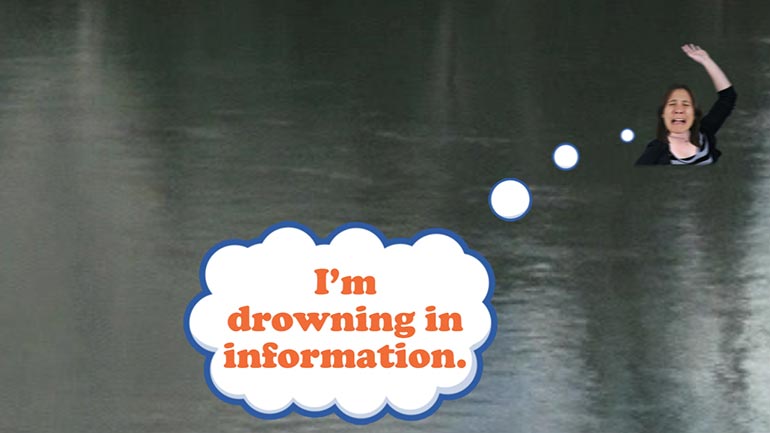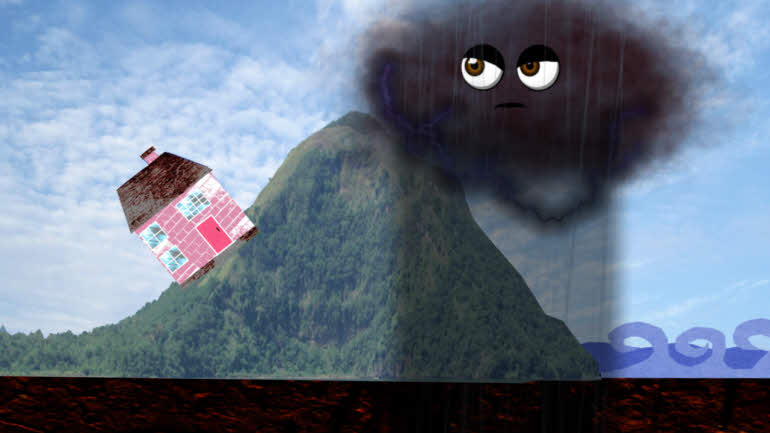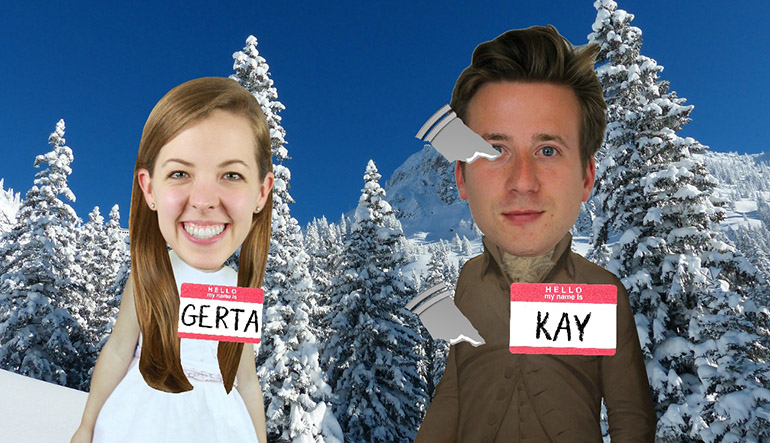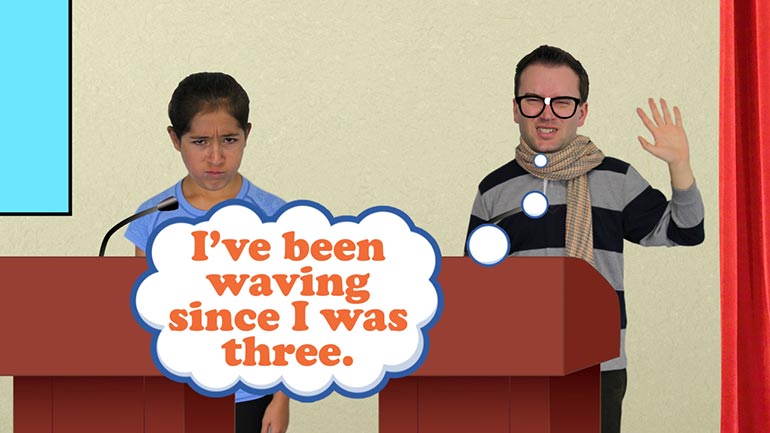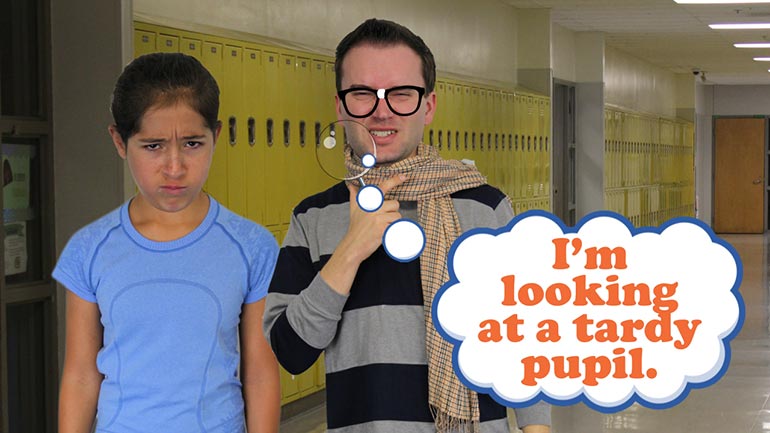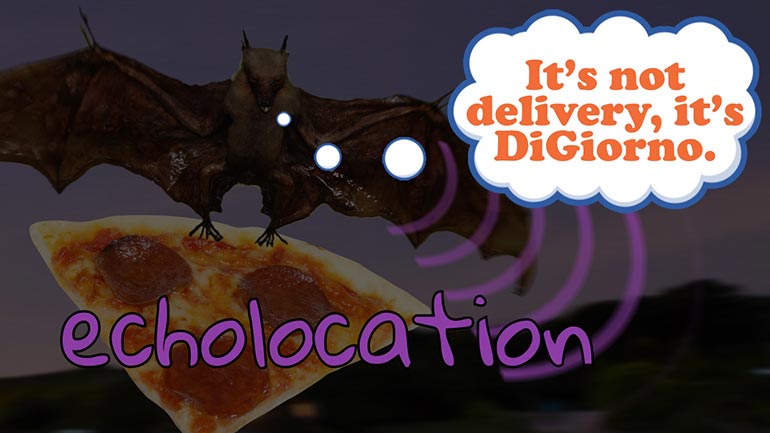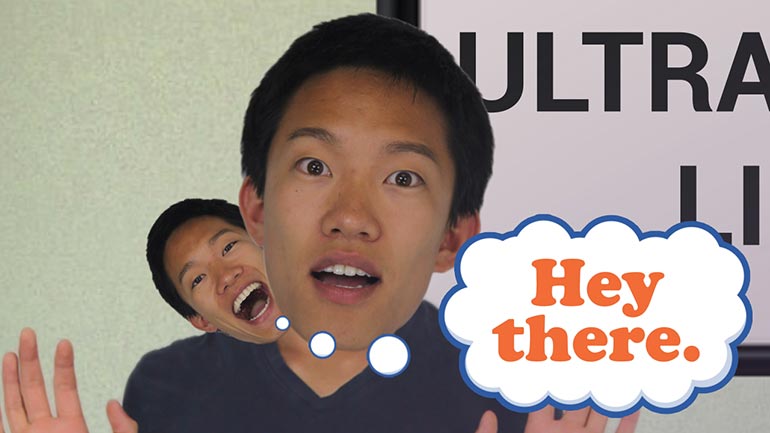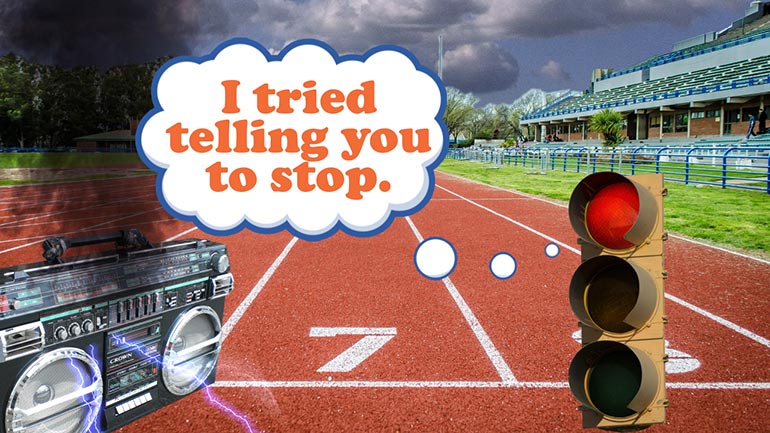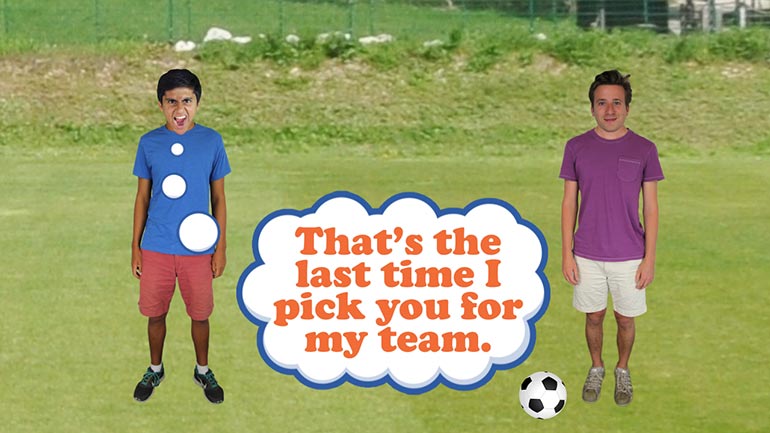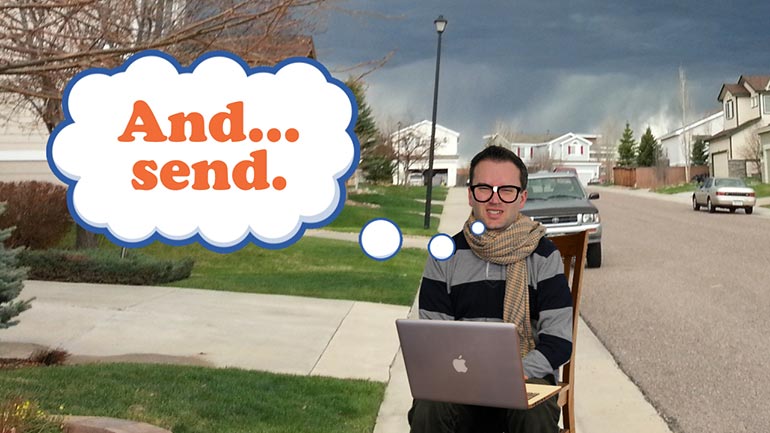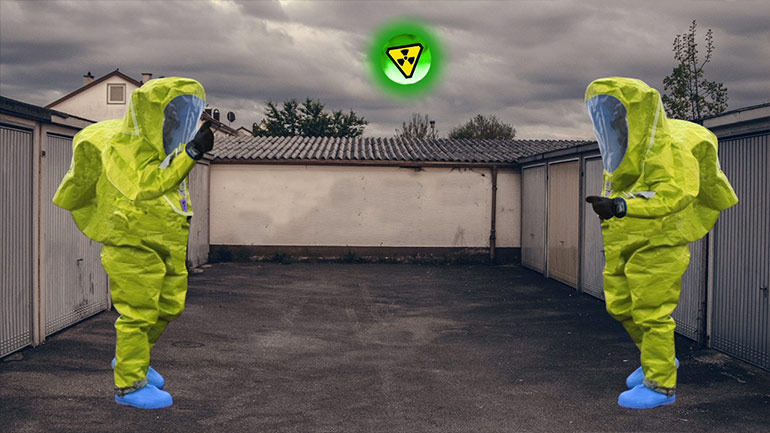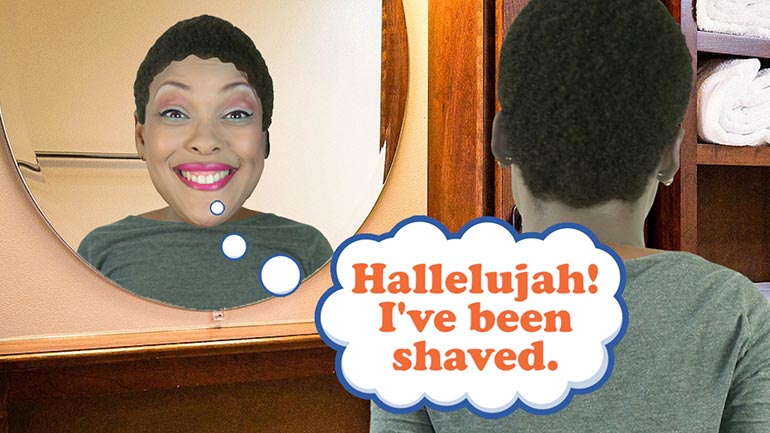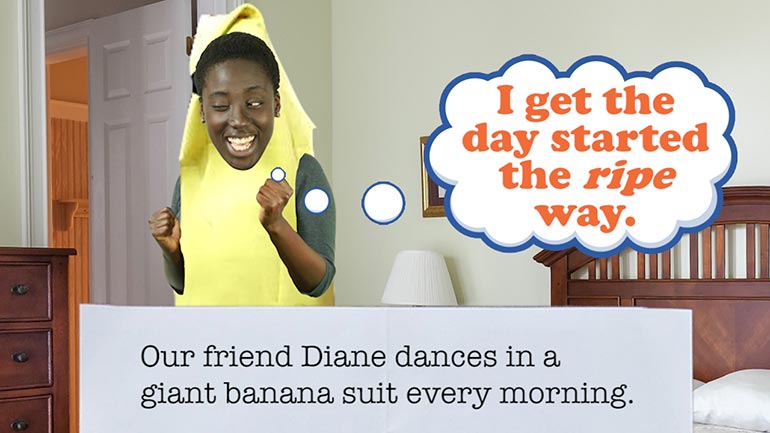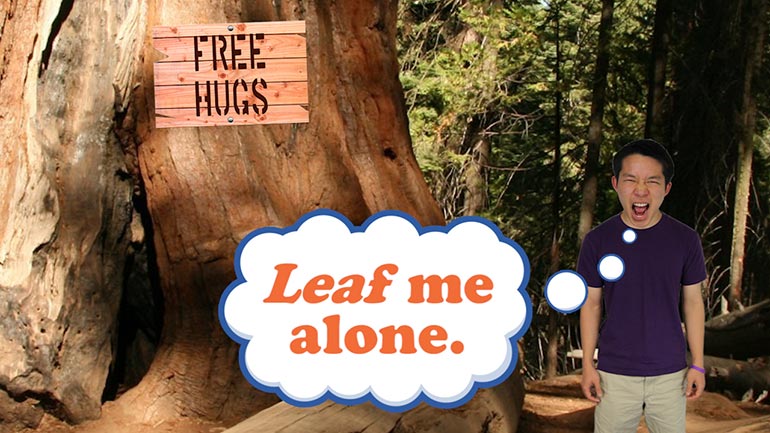ShmoopTube
Where Monty Python meets your 10th grade teacher.
Search Thousands of Shmoop Videos
Science Videos 21 videos
Apologies in advance if you came here really excited about a bicycle you can ride on water. We get that a lot. This video is really about the cycle...
Today we've got some geography. But that's not all, there are tons of extra features included free of charge. We've got rivers, lakes, deserts, mou...
There are tons of different types of maps. We practically need a map map to remember all of them. But don't worry, we've squeezed a few of the impo...
Science 4: Let's Make a Sound Code 6 Views
Share It!
Description:
Today we'll learn how to make sound codes. Use these and everyone else may think you've gone off your rocker and are just making random noises...but you'll know what's up. You'll know.
Transcript
- 00:03
[Dino and Coop singing]
- 00:13
There are all sorts of ways to make coded messages: you could use a secret set of symbols… [Top secret folder opens to reveal symbols]
- 00:18
…or program some advanced cryptographic algorithms. [Laptop showing code]
- 00:21
Although that might be a lot of work if all you want to do is send your friend a secret
- 00:25
message that says: "I'm outside." [Phone shows the message]
Full Transcript
- 00:26
Anyway, if you're not wild about algorithms, you could always make a sound code! [Boy hides from the nerdy looking kid behind the couch]
- 00:31
A sound coded message works almost exactly like a written coded message, but with one twist.
- 00:36
In written codes, we often use a chart where different symbols mean different letters. [Symbol chart]
- 00:40
Like instead of using the letter A, we might use a spiral.
- 00:43
And instead of using the letter B, we could use a triangle.
- 00:47
And so on and so forth.
- 00:48
The only difference with a sound coded message is that we use a bunch of sounds instead of [Record player]
- 00:52
a bunch of written symbols.
- 00:53
So instead of a triangle for B, we might use a snap. [Fingers click]
- 00:57
After all, it's awfully hard to imitate the sound of a triangle. [Someone playing a triangle]
- 01:01
They're generally very quiet and well behaved.
- 01:03
So let's see how this works in action!
- 01:05
We'll use this code as an example. [Sound code folder]
- 01:07
Let's say we wanted to say the word: "Iraq."
- 01:10
It has four different letters, so we'll need four different sounds. [Iraq is shown on a map]
- 01:13
When we consult our code, it says that the letter "I" is represented by a knock.
- 01:18
Pretty simple.
- 01:19
Moving along, "R" is the sound of "Vroom"…
- 01:22
…"A" is a whistle…
- 01:24
…and "Q" is a hoot.
- 01:26
So translated into our sound code, "Iraq" becomes: (Knock.) [Sound code is shown]
- 01:31
vroom, whistle, hoot.
- 01:34
It might sound kinda like gibberish, but anyone with the code will know exactly what you mean. [Boy looking confused while a girl with the code folder understands]
- 01:39
And with all that hooting, you might attract an owl or two, which is an added bonus. [An owl flies into the classroom]
- 01:43
We can even translate backwards, from sounds to text.
- 01:46
Say we heard: Woof boom boom. [Kid walking onto the school bus]
- 01:49
Let's get out our chart and see what it means.
- 01:51
It turns out "Woof" means "Z," so that's our first letter.
- 01:55
"Boom" means "O"…
- 01:56
…and since it happens twice, we've got two O's. [The code is shown]
- 01:59
So it turns out the sounds "Woof boom boom" mean: "Zoo." [The kids at the zoo]
- 02:02
And yeah, "Woof boom boom" does sound like a dog playing the drums. [A dog playing the drums at the zoo]
- 02:06
We were disappointed, too.
Related Videos
Sticks and stones, right? Well...only sometimes. It's a good idea to make sure your words aren't going to hurt others. Let's look at some ways to d...
Learn to debate like a champ. It's way better than debating like a chimp. That just takes mudslinging to a whole new level.
Today we'll learn about biographies and autobiographies. And no, the second one has nothing to do with the lives of cars.
In this lesson we'll subject you to some verbs and predicates. Each one is a necessary part of a complete breakfas—er...sentence.
Choosing words carefully is important. You may end up vexing the assemblage of citizens you're conversing with...or you might even just plain bore...

